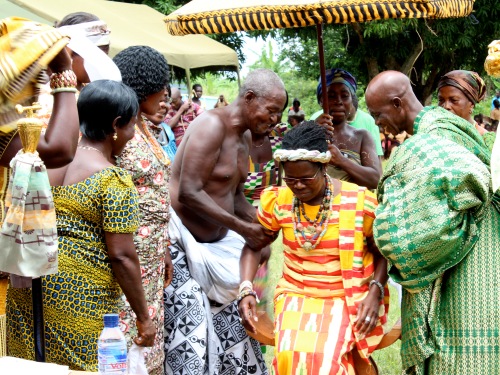Recently a colleague referred me to this article, detailing recommendations for improvements to Ghana’s education system. A few things stood out to me:
More than half of the candidates who sat for the BECE in 2011 failed to qualify for admission into Senior High Schools (SHSs) and Technical Institutes. An official of the Ghana Education Service (GES) was quoted, in the Daily Graphic (29/09/2011), as saying that such colossal failure was ‘normal’.
The BECE, or Basic Education Certificate Examination, is a mandatory standardized test that Junior HS students take in their third and final year. Failure to pass – attain a score of 50% or greater – necessitates a repetition of multiple previous terms.
While I’m not thrilled by the emphasis on standardized tests, this is unacceptably poor performance.
…well-intentioned educational policies failed because they … did not equally address supply side factors. For example, abolition of fees leads to dramatic increase in access to schooling and inversely impacts on learning quality … overwhelm[ing] infrastructure, teachers, cost allocation, text books, etc.
I’ve seen this played out, especially at the JHS level. Some schools practice the government’s ‘free education’ policy, not charging tuition and eliminating extraneous costs, but they typically have to advertise as such. Many others institute what I would call ‘hidden fees’ that ultimately supplement government failure to deliver textbooks or adequately pay its salaried teachers. In free education schools, attendance is much higher and teachers are far more strained.
A second policy with unanticipated results is the feeding program at the preschool level. Some parents withhold meals, assuming the government will properly feed the children. Yet in my experience, the meals provided are nutritionally inadequate. Whether this is poor outline (fault in policy) or poor delivery (corruption at a middle stage leaving little for the cooks’ use to buy good ingredients) I cannot say, but thousands of students rely on these meager meals to survive the day.
In both cases, I fault the improper communication with communities – a gap in expectation on both sides that never gets resolved, often addressed later through another broad-sweeping policy. The omniscient finger likely must be pointed many directions, though.
***
The article goes on to make some decent recommendations, though notably does not indicate a source of funding – I assume development partners and an unstated stop to internal corruption.
I particularly like those revolving around teachers – general teacher shortages, low salaries without further incentive, and non-uniform materials make the profession (although high in status) less desirable. I would add an integral teacher training program at all levels, even for the untrained graduates, that is often reinforced and updated.
A second critical gap is between teachers and even the lowest level of district government. This costs students updated syllabus material, textbooks, even desks in some cases. On a micro level, these are easy fixes. The article does a good job of showing that nationwide, some progress can still be made.
I’d be interested to hear other thoughts on this article, especially since I am new to Ghanaian education.







